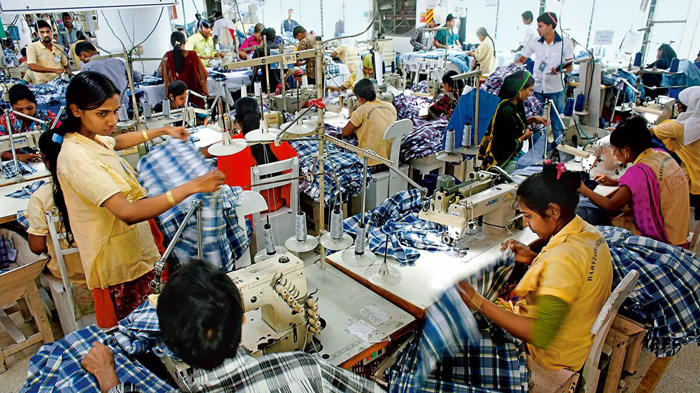"The United Nations recently declared an 11-year deadline to prevent irreversible damage from climate change. UK-based NGO Fashion Revolution has launched a Black Friday campaign that encouraged people to protest against mindless consumption and retailers to abstain from providing discounts. Similarly, Extinction Rebellion organized a series of peaceful protests across the world"
 Though the current climate and ecological crisis has made consumers aware of the perils of overproduction and overconsumption of apparels, their consumption habits have undergone some change. This can be noted from the fact that last year Americans spent 25 per cent more on online sales on Black Friday, while Cyber Monday became the largest online shopping event of all times reaching revenues of over $7.9 billion.
Though the current climate and ecological crisis has made consumers aware of the perils of overproduction and overconsumption of apparels, their consumption habits have undergone some change. This can be noted from the fact that last year Americans spent 25 per cent more on online sales on Black Friday, while Cyber Monday became the largest online shopping event of all times reaching revenues of over $7.9 billion.
Protesting against mindless consumption
The United Nations recently declared an 11-year deadline to prevent irreversible damage from climate change. UK-based NGO Fashion Revolution has launched a Black Friday campaign that encouraged people to protest against mindless consumption and retailers to abstain from providing discounts. Similarly, Extinction Rebellion organized a series of peaceful protests across the world. They asked fellow activists in New York to join their ‘Buy Nothing Day Whirl’ movement where people push their empty shopping carts through a store in a lengthy chain of ‘nonshoppers’ followed by meditation outside the New York Public Library.
As a part of their ‘Take Back Black Friday Campaign’, Eco Age and Global Fashion Exchange provided their customers toolkits to share facts and encourage a digital protest. Though this movement started in the US, it has gathered momentum in UK too.
Brands too join the movement 
UK-based fashion brand Raeburn launched a new campaign titled ‘Buy Nothing, Repair Something’ while designer and founder Christopher Raeburn closed both his East London stores and e-commerce section of his website to protest against Black Friday. This boycott is spreading to local European brands as well with Ukrainian brand Ksenia Schnaider planting 10 trees, through Team Trees, for every order during Black Friday weekend.
Patagonia encouraged customers to donate some money to an environmental NGO while beauty company Deciem closed all stores on Friday, November 29 besides shutting down its website for the entire day. Everlane also relaunched its Black Friday Fund through which it donated $10 from every order (up to $300,000) to help put an end to single-use plastic.
Promoting circularity
With these organisations and brands boycotting Black Friday and Cyber Monday, there seems to be a growing awareness of how overconsumption contributes to the climate crisis. However, this awareness does not match last year’s increase in sales over the previous Black Friday weekend. A 2019 Pulse of the Fashion Industry report by Global Fashion Agency, fashion production is projected to rise 81 per cent by 2030. We therefore, need to rethink our relationship with our overall purchasing pattern and instead focus on a consumption model that promotes circularity of clothing and other products.
Brands need to take the end responsibility of the clothes they produce. Consumers also need to remember that their urge to buy something new comes at a heavy cost for the planet. To prevent this, they need to apply a brake on their consumption.












